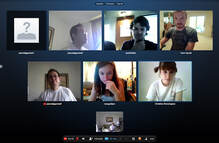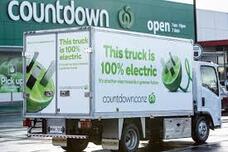
The USA has suspended passenger travel between the USA and Europe but there are many business people who need to conduct business between the two continents and if they can’t travel then they will set up Skype or other video service meetings and do business that way. This has been the case for some years and traveling to foreign countries has always been one of the perks of international business but it is expensive and time consuming so companies could insist on employees doing more without a physical visit.

Doctors are going consultations by Skype to limit infection but we could get used to it and the doctors might find it more efficient and use it more. If we had reliable instruments at home for temperature, blood pressure and a mini electrocardiogram, as we have on a phone app, a diagnosis of simple ailments can be done without a personal visit.
Universities are putting a lot of lectures on line and this Covid19 disruption to education will lead to a big expansion in online learning. Making use of a really good online presentation does not detract from education and can help many students of all ages continue education by not being present in a classroom. It might enable university students get a good degree without the huge expense and debt of attending a university in a faraway city.

If a supermarket did not have to deal with customers would it move to an industrial estate and handle it’s orders like a spare part distributer or like Amazon? We would then have a fleet of small vans driving around the town delivering food. Expanding use of home delivery is why Amazon has ordered 100,000 electric vans from Rivian for last mile deliveries and with a warehouse roof full of solar panels supplying power and eventually autonomous self-driving vans, it would be a cheap delivery service. It is all part of the growing trend for online shopping

Youngsters are using their phones for social interaction and people date and eventually marry via the internet. This trend towards online interaction has been growing for some years and is just a different form of living which will continue to establish itself in society.
Life is not going to be the same again.





 RSS Feed
RSS Feed